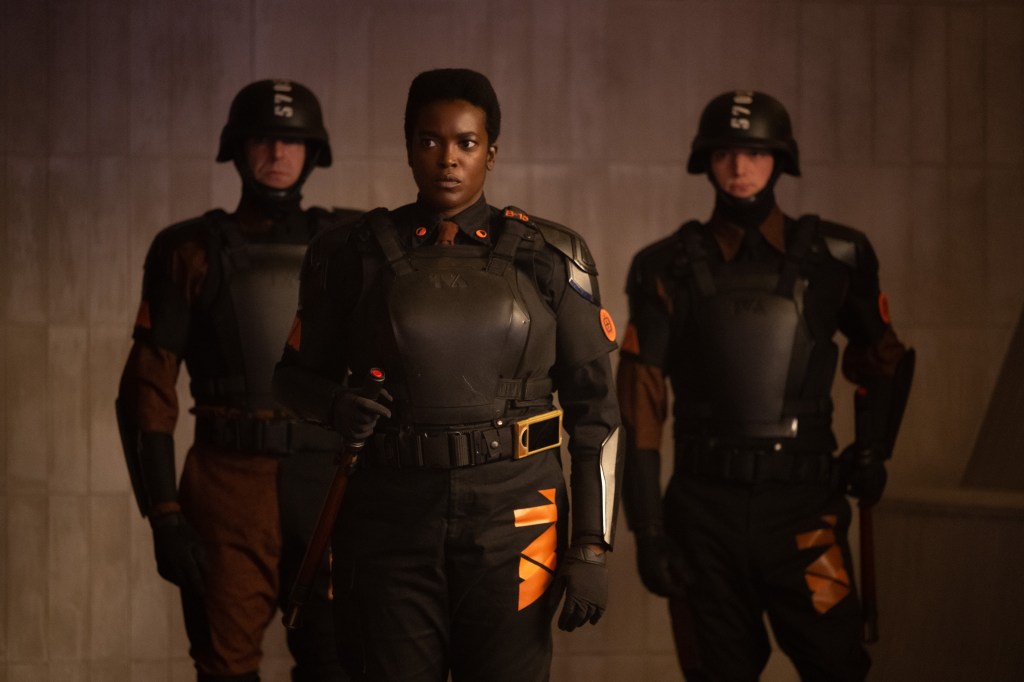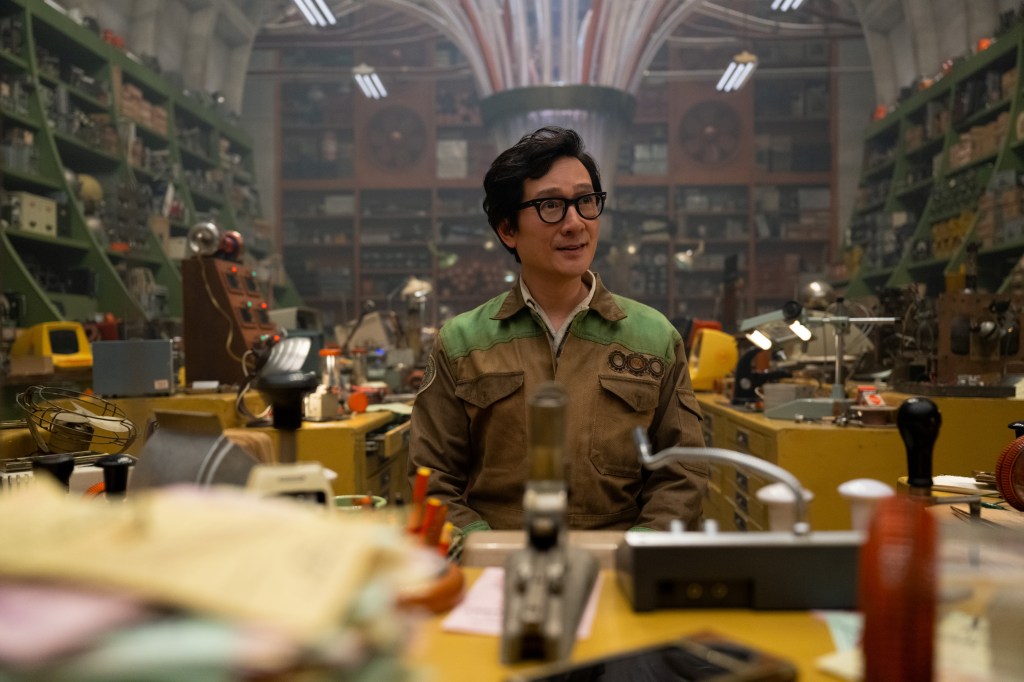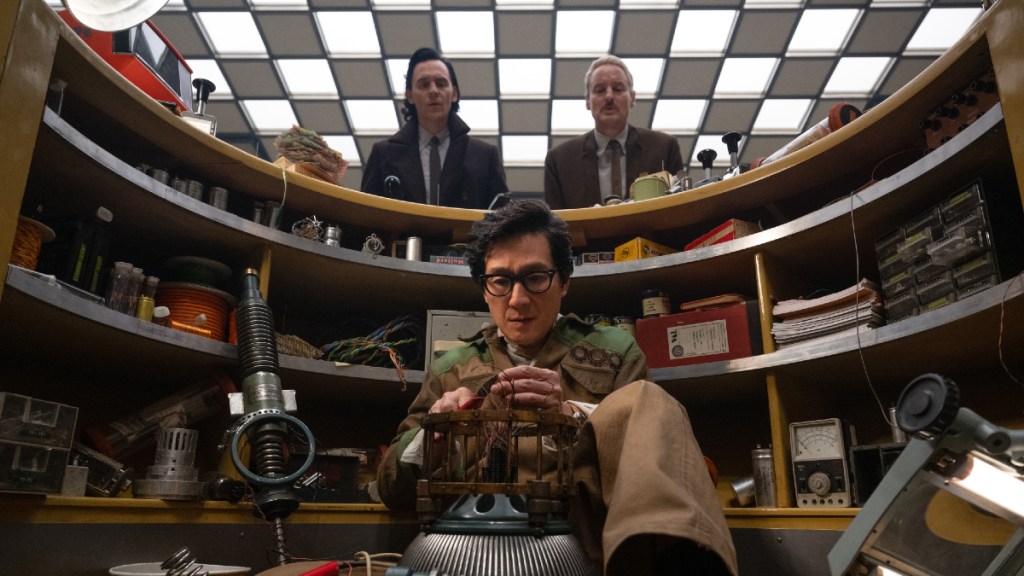Loki‘s season 1 cliffhanger left us with many questions, and at least one big expectation. When Sylvie (Sophia Di Martino) killed He Who Remains (Jonathan Majors), the story thus far had led us to believe the consequences of killing the nicest Kang variant would lead to the unleashing of all the bad ones, as seen in the mid-credits scene of Ant-Man and the Wasp: Quantumania.
That’s not quite what happens in season 2. Four episodes deep, the only new Kang encountered is Victor Timely. Timely is a stuttering, bumbling con man from the 19th century who has genuine knowledge of future technology, but mostly uses it to swindle rich investors. Awareness of the real-world allegations against Jonathan Majors may induce a viewer to be appropriately suspicious of the character; for now, at least, the actor has kept his job regardless.

As for Loki (Tom Hiddleston), his dilemma quickly turns into another that has him pulled back and forth through time. But there are larger problems afoot, as the multiverse is growing too big for the TVA to handle. They essentially need to upgrade their equipment to handle it. Unfortunately, due to deeply embedded ID programming, that won’t be possible without the help of He Who Remains, or at least some variant thereof. The name “Kang” is not spoken by anybody, so far – if there are somehow any Quantumania viewers who haven’t seen Loki season 1 and watch this, they will need some additional backstory.
Where Do We Go Now?
Loki season 1 is a tough act to follow. It laid down specific rules about the multiverse and variants as we are to understand them in the Marvel Cinematic Universe. Further, the series surprised us every week with revelations ranging from Sylvie being female Loki to the Time Keepers being animatronics — not to mention Richard E. Grant the original spandex-wearing Loki. It also maintained an urgent mystery thread: who founded the Time Variance Authority and why?
Season 2 has no question so compelling – most of its problems are technobabble, and the solutions even more technobabble.
Quan’s the Man
Like a lot of Marvel and sci-fi shows, Loki season 2 puts a lot of the budget into the first episode. It houses some grand-scale CG stuff that’s made up for — fiscally — with long sequences in single rooms in the subsequent installments. Despite quickly handwaving some of the implications from the last cliffhanger, that first episode is fun, cribbing a key moment from The Fifth Element. It also introduces us to Key Huy Quan as Ouroboros, (“O.B.” for short), the TVA tech guy who literally wrote the handbook.

Quan’s interactions with Loki and Owen Wilson’s Mobius feature some smart time-travel humor. Loki phases back and forth between past and present, constantly rewriting O.B.’s memories in real time. This feels like a violation of MCU time travel laws as portrayed in Avengers Endgame, but never mind – Loki is a show about fundamentally altering canon, after all.
Far, far less interesting is Rafael Casal as Brad Wolfe, an old associate of the TVA who’s living life on Earth as a 1970s movie star. Long stretches are devoted to his character, who seems to exist only to have a tiny piece of information that could have been found in other ways. One imagines Wonder Man will cover similar ground, and here’s hoping that show has more to say about the notion of an actor with powers. It’s not necesaraily Casal’s fault that Wolfe’s a bore, but he doesn’t do much to alter that fact either. And his subplot justifies torture, for those who take their MCU implications uber-seriously.
Stick to What Works
A sequence set in the 1890s tries to deliver a vaudeville-style slapstick chase, but it’s weak in execution. Marvel has generally been so good at bringing in other influences that it’s just awkward watching them trying and failing to incorporate such a striking style. Poor choreography aside, though, it’s fun to see a superhero show use ye olde World’s Fair as its setting, given how often such events seem to occur in the comics, usually as supervillain targets.

Rather, Loki works best when it sticks to the things that already work: the Loki-Mobius dynamic, Tara Strong as the unhinged AI mascot Miss Minutes, and the weird way bureaucracy and intergalactic cataclysms interact at the TVA offices. Neil Gaiman and Terry Pratchett did it better with their well-regulated Heaven and Hell in Good Omens. But then, when don’t they?
Episode 4 does end on one huge cliffhanger, and it’s an order of magnitude more compelling than those in the preceding weeks. There could be major (Majors?) implications, or it could simply be handwaved away as easily as season 1’s ending. As long as we keep getting Ouroboros and his clockwork comedic timing, he’ll make it worth seeing till the end. This isn’t the MCU-saving show you might have been hoping for, but it at least creates another iconic Key Huy Quan character to love.
Grade so far: 2.5/5
Loki season 2 debuts Oct. 5 on Disney+.




